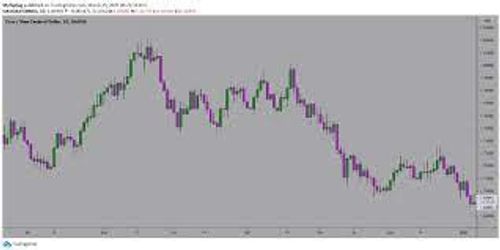The American stock markets are very liquid and efficient because billions of stock shares are exchanged daily. New investors may be unaware that the stock market is available for business before and after the typical trading hours. Investors can trade equities during the pre-market session from 4 a.m. to 9:30 a.m. and during the post-market session from 4 p.m. to 8 p.m. These trading periods occur before and after the regular market hours.
Compared to the billions of shares exchanged during the usual trading day, the volume of shares moved during after-hours sessions is just a tiny fraction of that amount. Because of this, traders have to examine additional issues before engaging in trading outside the typical trading day. Is it possible to earn money trading before or after the market opens? It is a possibility; however, you must first do the necessary investigation.
Responding to Announcements Made by Companies
Businesses need careful planning and strategy when announcing significant information like earnings reports. They do not like to make announcements during normal trading sessions because it might produce a significant knee-jerk response that misrepresents the genuine worth of their stock. This is one of the reasons why they do not like to make announcements. Significant-scale sales of a firm's shares might result in unwarrantedly large losses if the company reported its results for the previous quarter and were lower than analysts had anticipated.
Economic Indicators
Many economic data publications occur around 8:30 a.m., one hour before trading starts in New York. The market's response to these indications may result in significant price swings, and as a result, they establish the mood for the trading day.
One of the most significant influences on the market is, for instance, the employment report that is compiled and distributed by the Bureau of Labor Statistics (BLS) of the United States of America on the first Friday of every month. When the data that is published is either in line with or falls outside of expectations, traders might anticipate volatility in the market.

Liquidity Limitations
One of the advantages of being an institutional investor used to be the ability to engage in trading before and after regular business hours. Before the switch to automated trading, individual investors were unable to get access to the markets; now, this is no longer the case. Now that retail investors may participate in these markets, the question is whether or not it is prudent to trade during the after-hours sessions.
Before trading outside of normal business hours, the Securities and Exchange Commission (SEC) wants you to know a few key points. To begin with, these markets have a lower level of liquid. In addition, there are far fewer individuals dealing, so it's possible that you won't be able to sell your shares. Suppose a company's earnings release is worse than anticipated, and you want to sell your shares fast. In that case, you may be unable to, particularly with non-blue chip businesses and smaller corporations.
Wider Spreads, Higher Volatility
A further aspect of after-hours trading must be considered, the bid-ask spread. If the difference between the two prices is significant, the few dealers involved have not settled on a reasonable price. As a result, you may have little choice but to agree to a price below what the item is worth. Last but not least, the potential for more price volatility exists during after-hours sessions due to the high proportion of professional traders and the low number of trades. Because of this, it could become more challenging to determine the optimal time to purchase or sell. A single substantial transaction carried out by a prominent company may considerably influence the price of a stock.
Limitations After Hours
If you want to trade during the pre-market and after-hours periods, you could find that your options are restricted in certain ways. Conventional and after-hours trading provides several important distinctions when compared side-by-side, as shown by Charles Schwab's extended-hour overview.

Trading On exchanges
To carry out a diverse range of order kinds and constraints, irrespective of order size. A wide range of financial instruments include equities, options, bonds, and mutual funds. Traders are given access to a variety of time limitations to choose from. Contrast that with the after-hours session offered by the brokerage:
- Transactions are carried out using an online trading platform.
- Only limit orders are permitted, and 25,000 shares cannot be purchased in a single transaction.
- The vast majority of listed and NASDAQ stocks may be purchased.
Technology Glitches
One of the challenges investors will face is the systems that come with internet trading in general. When it comes to trading outside normal business hours, there is a possibility that there may be lags and delays in the execution of your orders. Even worse, there is a chance that your purchases may not even be processed at all.



